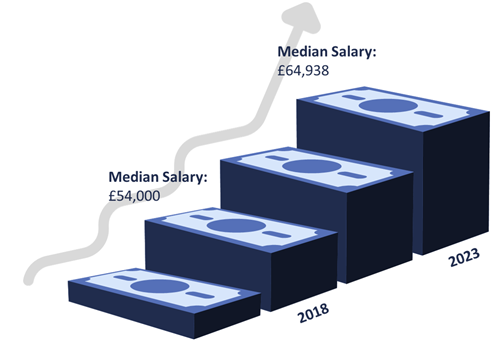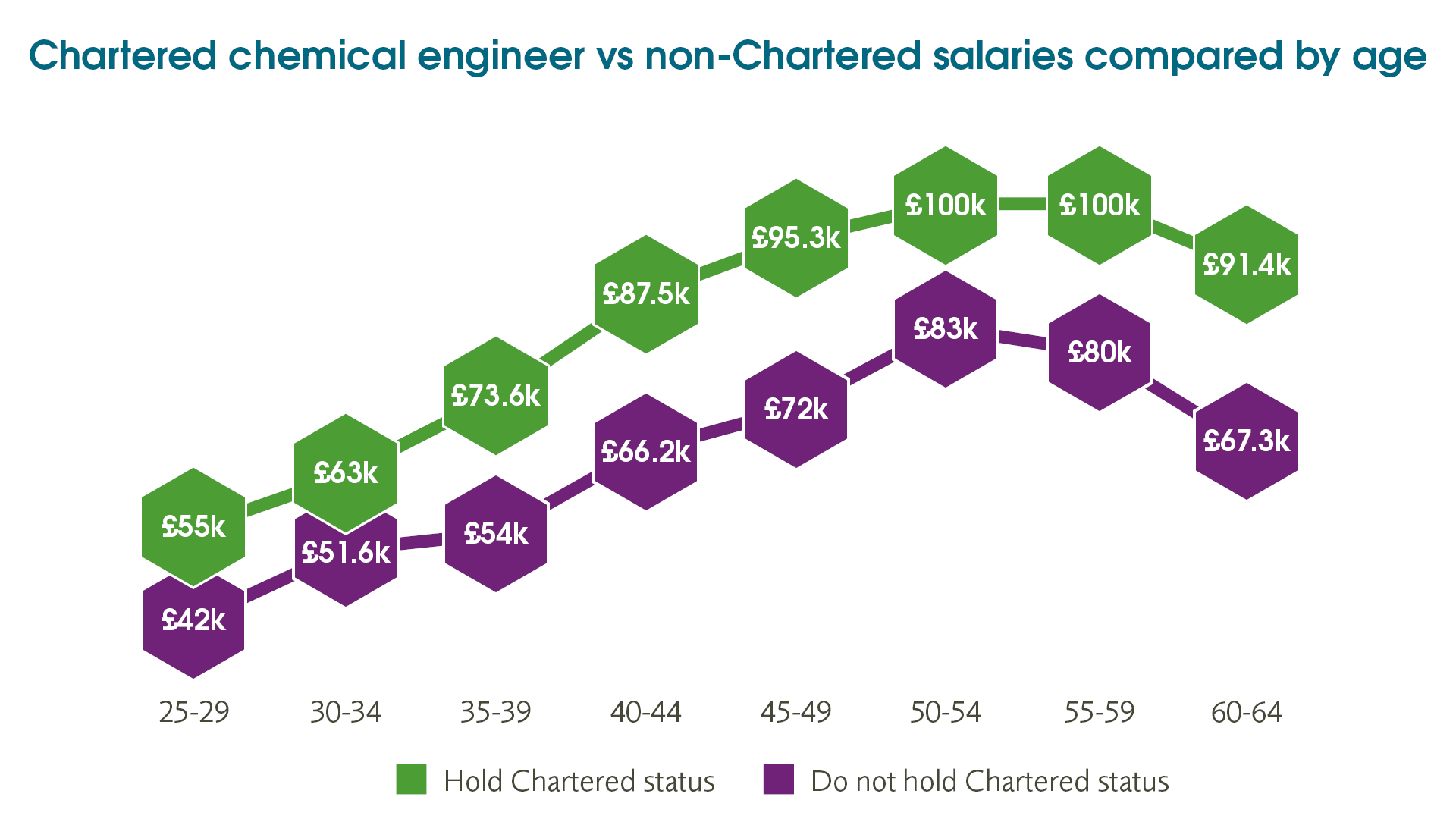Salary insight - how much do chemical engineers earn?
The IChemE Salary Survey, conducted in Q4 2023, was open to all members, except for Student Members and members who are retired. A total of 2,402 IChemE members took part in the survey (of this, 54% of participants were Chartered Chemical Engineers) providing a response rate of 10.2%.
Salary insight

The current median salary for IChemE members stands at £64,938 with the median annual bonus at £6,741. Median salaries witnessed an impressive 20% growth since the last survey in 2018, a testament to the resilience and dynamism of the profession.
Notably, the oil refining and mining and minerals sectors emerged as the frontrunner with a median annual salary reaching £87,000. Whereas, respondents from the manufacturing and water sectors reported median salaries of £52,000.
How much do Chartered Chemical Engineers earn?
Chartered status is the key factor impacting salaries, with Chartered engineers earning an annual median salary of £85,000 compared with non-Chartered engineers earning £47,000. The median annual salary for Chartered members is £38,000 higher than the median annual salary for a non-Chartered member and this difference is repeated in respect to any bonus payments received. There is also a clear correlation between salary satisfaction and having Chartered status, with 70% of Chartered members being satisfied with their current salary.
The largest salary increase occurs when members move from being an Associate Member to becoming a Chartered Member, earning an additional £32,379.
In addition to the increased earnings, reported benefits of Chartered status are professional credibility and recognition; a sense of achievement or satisfaction; increased confidence levels in an individual’s abilities; and positioning members to support colleagues and other chemical engineers.

How to become a Chartered Chemical Engineer
There are three aspects to qualifying as a Chartered Chemical Engineer. Firstly, you must have a high level of chemical engineering knowledge and understanding - this can come from qualifications and workplace learning. The second aspect is the initial professional development that you undertake early in your career, where you learn to apply your knowledge and understanding, develop your skills, and gain the experience required to help you become professionally qualified. Finally, as you build on your initial professional development and become an experienced senior engineer with significant responsibility, you will be able to complete the journey to becoming a Chartered Chemical Engineer.
Find out more about Chartered membership and how we assess these three areas >>
Salary Survey report and Calculator
The full salary survey provides a more in-depth analysis of salaries, the impact of Chartered status, future skills development, recruitment and retention, and sector trends. A salary calculator has also been developed, enabling you to view earnings based on age, industry sector and level of responsibility.
These member resources can be accessed from your MyIChemE account.